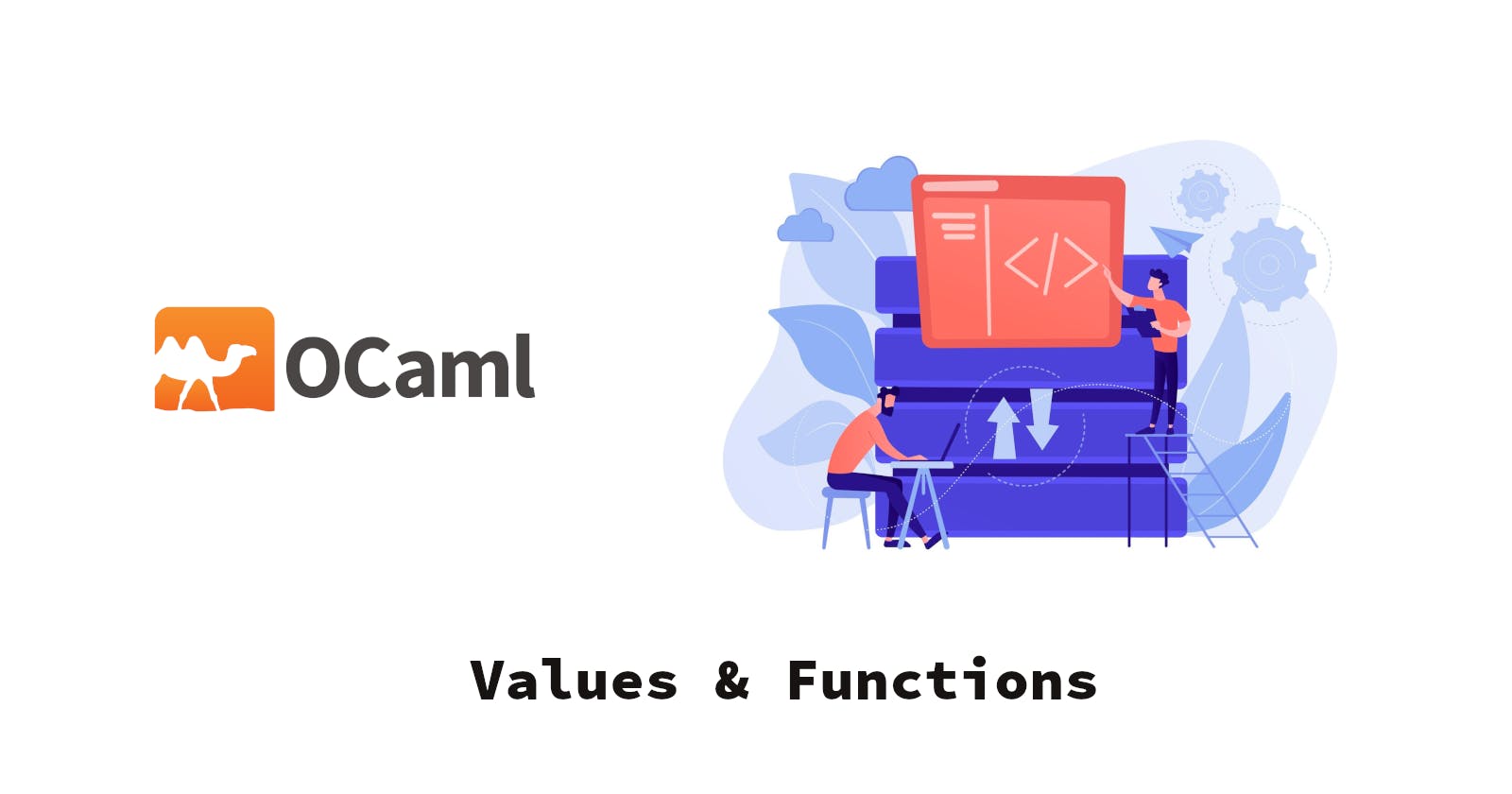Understanding Values and Functions in OCaml
Baby steps towards functional programming with OCaml
Table of contents
Introduction
OCaml, a functional programming language from the ML family, offers a rich environment for developers to express algorithms elegantly and succinctly. Its design emphasizes safety and efficiency, featuring a powerful type system and automatic memory management. At the heart of OCaml's expressiveness are its notions of values and functions, which stand out as the building blocks for constructing complex programs. Understanding how OCaml approaches values and functions provides insights into functional programming paradigms and opens up new ways of thinking about software development. This exploration aims to demystify these concepts, offering a clear understanding through concise explanations and practical examples. Whether you're new to OCaml or looking to deepen your functional programming knowledge, this guide will illuminate the essential aspects of values and functions within the OCaml language.
Context
In OCaml, everything revolves around expressions, which are constructs that can be evaluated to produce a value. This value-oriented nature ensures that from simple data types to complex functions, every element in an OCaml program has its place within the comprehensive type system. Functions in OCaml are treated as first-class citizens, allowing them to be passed as arguments, returned from other functions, and bound to names for reuse, showcasing the language's flexibility and power.
Examples
String Values: In OCaml, strings are encapsulated within double quotes and evaluated to themselves.
Example:
# "Hello, World!";;Explanation: This expression is a string literal, evaluating to the string value
"Hello, World!".
Integer Arithmetic: OCaml supports basic arithmetic operations directly on integer values.
Example:
# 2 * 21;;Explanation: This evaluates to
42, showcasing how expressions involving integers and operations produce integer values.
Function Application: Functions are applied to arguments without needing parentheses for single arguments.
Example:
# sqrt 4.0;;Explanation: Applies the square root function to
4.0, resulting in2.0.
Anonymous Functions: OCaml allows the definition of functions without naming them, useful for short-lived operations.
Example:
# fun x -> x * x;;Explanation: This creates an anonymous function that squares its input, demonstrating functions as values.
Using
letfor Definitions: Theletkeyword binds values or functions to names.Example:
# let greet = "Hello, OCaml!";;Explanation: This binds the string
"Hello, OCaml!"to the namegreet, illustrating how OCaml assigns names to values.
Conclusion
Values and functions in OCaml embody the essence of functional programming, providing a versatile framework for software construction. Through the examples provided, we've seen how OCaml treats everything as an expression, facilitating a uniform and powerful way to handle computation. Whether manipulating basic data types or defining intricate functions, OCaml's concise syntax and robust type system offer the tools necessary for creating efficient and reliable programs. Embracing these concepts opens the door to a more functional approach to programming, where solutions are not just about getting the job done but doing so elegantly and effectively.
References
OCaml Official Documentation: https://ocaml.org/docs/
Real World OCaml: https://dev.realworldocaml.org/
OCaml from the Very Beginning: https://ocaml-book.com/
Try OCaml: https://try.ocamlpro.com/

